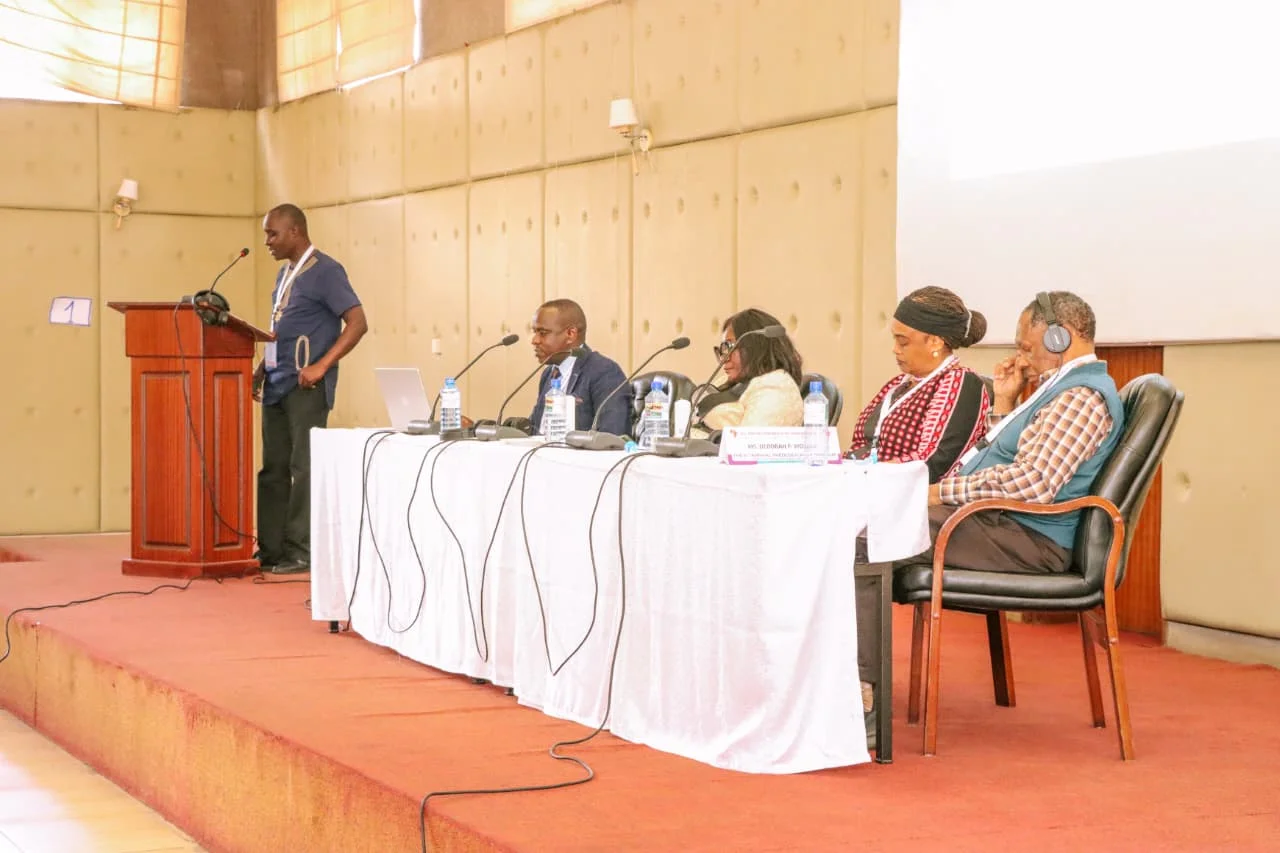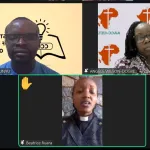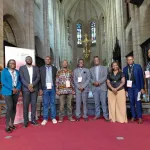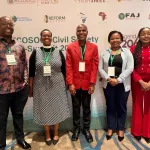AACC’S 6th Theological Symposium Examines the Geopolitics of African Churches, Israel and Palestine
The plenary session on Theology and the Israel-Palestine Conflict opened with Rev. Dr. James Mwita’s compelling reflection on how sacred beliefs shape politics and diplomacy. He described theology as “a tool of statecraft,” showing how faith traditions intersect with governance, producing what he termed “sacred statecraft and secular paradoxes.” The session traced the conflict’s historical and theological roots, exploring justice and reconciliation theology, interfaith dialogue and the African perspective of Ubuntu.
Prof. Helen Ishola who is a microbiologist but also a theologian presented second, with his paper addressing the role of the African church in addressing geopolitical interests in the context of Israel and Palestine crisis. Prof Helen shared that pedagogical agendas that promote spiritual and theological formation in context are essential for shaping leaders who can meaningfully engage with real-world issues such as the Israel-Palestine conflict.
Presenting on the Geopolitical interests, Rev. Nyabola James, a pastor at Nyamacharia church of the Nazarene in Kisumu, Kenya argued that all regions in the world originated from the same place; around Palestine and that the concept of God as a supernatural is common among all.
“African Churches also draw a parallel between the Palestinian struggle for justice and their past experiences with colonization and apartheid.” Articulated Rev. Nyabola.
Closing the session was Prof. Maake Jonathan, Emeritus Professor of Practical Theology at the Faculty of Theology and Religion, University of Pretoria. In a passionate critique of global power dynamics, he mourned the rise into positions of influence people whose actions and leadership style are driven by insecurity.
“When you have low self-esteem, you tend to bring others down,” he observed, “for it means the image of God within you has been distorted.”
Speakers in the plenary sessions, underscored the role of African churches in promoting peace, urging them to model dialogue, advocate reconciliation and ground faith in compassion and justice.
In the photo: Panelists leading the session on Theology and the Israel-Palestine Conflict.




